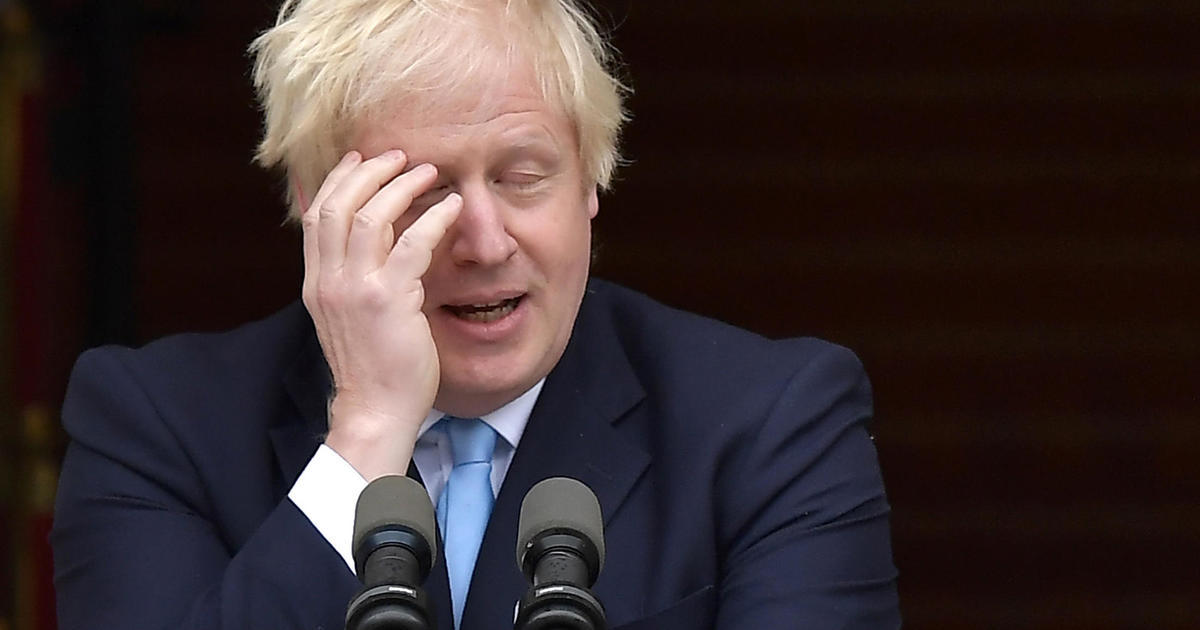
London — The Supreme Court of the United Kingdom has declared Prime Minister Boris Johnson’s suspension of Parliament just weeks before the deadline for Britain to leave the European Union unlawful. Johnson was accused of suspending, or “proroguing” the legislature to limit the time lawmakers have to debate and intervene in his Brexit policy. He had insisted the prorogation was standard operating procedure for a new prime minister, and that it had nothing to do with the looming Brexit deadline.
Lady Hayle, President of the Supreme Court, said Tuesday that she and the other 10 justices had reached a unanimous decision that Johnson’s move to send the lawmakers home before such a monumental change in the nation’s trajectory was unlawful. Parliament, she said, “has a right to a voice in how that change comes about.”
It was a devastating blow to Johnson, as the high court cleared the way for Parliament to reconvene immediately to resume debating his Brexit plans. The ruling by the 11 justices was in line with a previous decision by a Scottish court, which also found Johnson’s move to suspend parliament was illegal, and null and void.
“Parliament has not been prorogued. This is the unanimous decision of all 11 justices,” Lady Hale said. She noted the “quite exceptional circumstances” under which Johnson had attempted to suspend Parliament, and said the “effect on the fundamentals of our democracy was extreme.”
Hayle said Johnson’s government had given “no justification” for the five-week suspension, which she noted would normally last just four to six days. The government, she said, failed to explain “why it was necessary to bring normal parliamentary business to a halt five weeks before” the Brexit deadline.
What next?
These are uncharted waters for both the United Kingdom and the EU; no nation has ever tried to extrapolate itself from the 28-nation bloc before, so it’s unclear what exactly will happen next.
It was even unclear how soon British parliamentarians might actually return to work, as the high court left those details to the legislature’s leadership to determine. There were unconfirmed reports in the British press that they could come back as soon as Wednesday.
Lawmakers from the anti-Brexit camp — and those who say the 2016 public referendum results should be honored, but not without a deal in place to replace the relationship — hailed the court’s decision as a defense of Britain’s centuries-old system of democracy, which effectively places the Parliament at the top of the pecking order, over the prime minister.
As of Tuesday, the October 31 deadline remained in place, but according to law (more on that in a second), Johnson cannot deliver Brexit without a deal in place.
Johnson’s Brexit charge
Johnson has vowed for weeks to pull Britain out of the European Union by the October 31 deadline, with or without a deal laying out future trade and customs arrangements. He has touted, meanwhile, ongoing negotiations with the EU to hash out a new withdrawal agreement to replace the one his predecessor Theresa May reached with Brussels, but failed three times to get the British Parliament to endorse.
Economists, business leaders and even politicians from his own Conservative Party have issued dire warnings that a no-deal Brexit could severely damage the U.K. economy and cause shortages of food and medicines as log-jams form at ports. The prime minister has dismissed those warnings as “fear-mongering,” insisting they are overstated and that the U.K. will be prepared for the divorce with or without a deal.
But resistance to a no-deal breakup is so strong in Parliament that, in the days before Johnson sent them all home, lawmakers passed legislation making it illegal for him to forge down that path. The vote on September 4 means that Johnson (if he can even hold onto his position as prime minister for that long) will be in violation of the law if he tries to take Britain out of the EU with no deal in place.
If he doesn’t secure a deal in the days before Halloween, Johnson is now required to go back to Brussels and seek another delay to the Brexit process, something he has vowed never to do.
Calls for him to step down as prime minister grew louder on Tuesday after the Supreme Court’s ruling. Johnson was in New York to attend the United Nations General Assembly as the decision was handed down, and there was no immediate reaction from his office.
The “backstop” problem
The sticking point in the agreement that May negotiated with the EU is the “backstop” provision for the Irish border. The clause was written to ensure that, regardless of other trade and customs terms, the border between Northern Ireland, which is part of Britain, and the Republic of Ireland, which is an independent nation and EU member, remains open as it has since the late 1990s.
Ireland’s government and the EU insist it is vital to ensure that border stays open, without security checkpoints and with minimal customs checks, to avoid rekindling the sectarian tension of “The Troubles” that ended with the landmark Good Friday Agreement.
That pact, which officially took effect in December of 1999, ended decades of violence and established the partially devolved government in the British territory of Northern Ireland. It also opened up the border that divides the Irish island, creating a friction-less and virtually imperceptible (apart from road signs) crossing point between the U.K. and the EU. It is the only land border between Britain and the bloc.
The problem is that ardent supporters of Brexit, including Johnson, say the backstop as negotiated by May could effectively leave the whole U.K. beholden to the EU’s trade rules indefinitely, even after Brexit.
Europe has repeatedly called on Johnson’s government to put forth a viable alternative to the Irish backstop as written in May’s draft. Johnson’s negotiators did, after weeks of delay, send some ideas to Brussels last week, but the Europeans dismissed them as untenable and insufficient.

